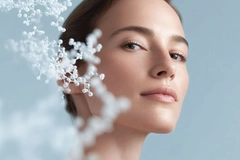Circular beauty webinar preview: How can personal care brands deliver a waste-free future?

25 Apr 2023 --- Achieving a circular economy is becoming a central goal in the beauty and personal care industry. Suppliers, brands and non-governmental organizations (NGOs) are carefully considering their approaches toward a shared and more environmentally sustainable future
PersonalCareInsights brings together experts and professionals to discuss various solutions and challenges in our webinar, which is going live tomorrow, April 26, at 4:00 PM (CET).
Between 2018 and 2022, a 210% average annual growth in global personal care product launches was tracked with carbon labeling environmental filters, shares Innova Market Insights. Also, one in two consumers globally agree they want more personal care products using upcycled ingredients.
R&D, technology and cross-sectorial partnerships are driving innovations, such as upcycling active ingredients from waste and repurposing by-products from food and packaging materials. Regulations for greener and cleaner beauty are placing pressure on the industry players to provide environmentally sustainable solutions with reduced greenhouse gas emissions along the manufacturing process until the product’s end.
With these demands for a green transition, how can personal care brands deliver a waste-free future? We will discuss these issues, reveal more global data from Innova Market Insights and speak with Givuadan, Arkive and the European Environmental Bureau.
Circular industry and raw materials
Mélanie Duprat, active beauty’s category manager for natural extracts at Givaudan, will delve into the circular economy from an industry perspective, sharing upcycling solutions while highlighting the challenge of a growing demand for natural-based products.
She has many years of experience in the cosmetic industry, where she devoted herself to marketing natural products.  The Question & Answer session will feature a discussion on topics, such as banning synthetic ingredients and mercury, regulatory challenges on ecommerce and the importance of new biotechnology-based innovations.
The Question & Answer session will feature a discussion on topics, such as banning synthetic ingredients and mercury, regulatory challenges on ecommerce and the importance of new biotechnology-based innovations.
Duprat will discuss how cosmetic suppliers can meet the growing appetite for naturality while still protecting the environment, which is put at risk by consumerism.
Moreover, she will highlight two types of circularity while stating that biodiversity protection is an industry duty. Since food and cosmetics use the same materials, Duprat thinks answers lie in cross-sectorial alliances and smart ways of using raw materials.
Mercury impacts on environment and health
Elena Lymberidi-Settimo, policy manager for the ‘Zero Mercury Campaign’ at European Environmental Bureau, will spotlight the relationship between health and the environment through the case of mercury use in cosmetics.
Underscoring the toxic cycle of mercury from products to the environment and animals, she will highlight regulatory loopholes on a global scale.
Whether mercury use is intentional or not, Settimo flags the risks of its use throughout the supply chain from manufacturers, sales and users, primarily via e-commerce.
The controversial skin-lightening metal reveals racial beauty standards while implicating the health of humans, non-humans and the environment.
Settimo is also the co-founder and international co-coordinator of the Zero Mercury Working Group, an international coalition of more than 110 NGOs from over 55 countries and has over twenty years’ experience, working at EU and global levels.
To recycle or to repurpose?
There is a lot of waste in the beauty industry, according to Sinem Tuncer, founder and CEO at Arkive. She has 15 years of experience in supply chain management and five years in technology, working in different types of industries.
Tuncer will highlight the importance of cosmetic end-of-life product management through repurposing waste. She will also reveal alarming global data on cosmetics waste and how her brand tackles this excess. To her, throwing away cosmetics with valuable ingredients is like a crime against humanity.
From a brand perspective, Tuncer will discuss how recycling is not always the best answer for a circular economy. She reveals how Arkive repurposes ingredients from cosmetic waste into new products outside the beauty industry.
In times of global inflation and the growing need for hygienic products for those who cannot afford them, Sinem will also delve into the importance of social work.
Moreover, the Question & Answer session will feature a discussion on topics, such as banning synthetic ingredients and mercury, regulatory challenges on ecommerce and the importance of new biotechnology-based innovations.
By Venya Patel













